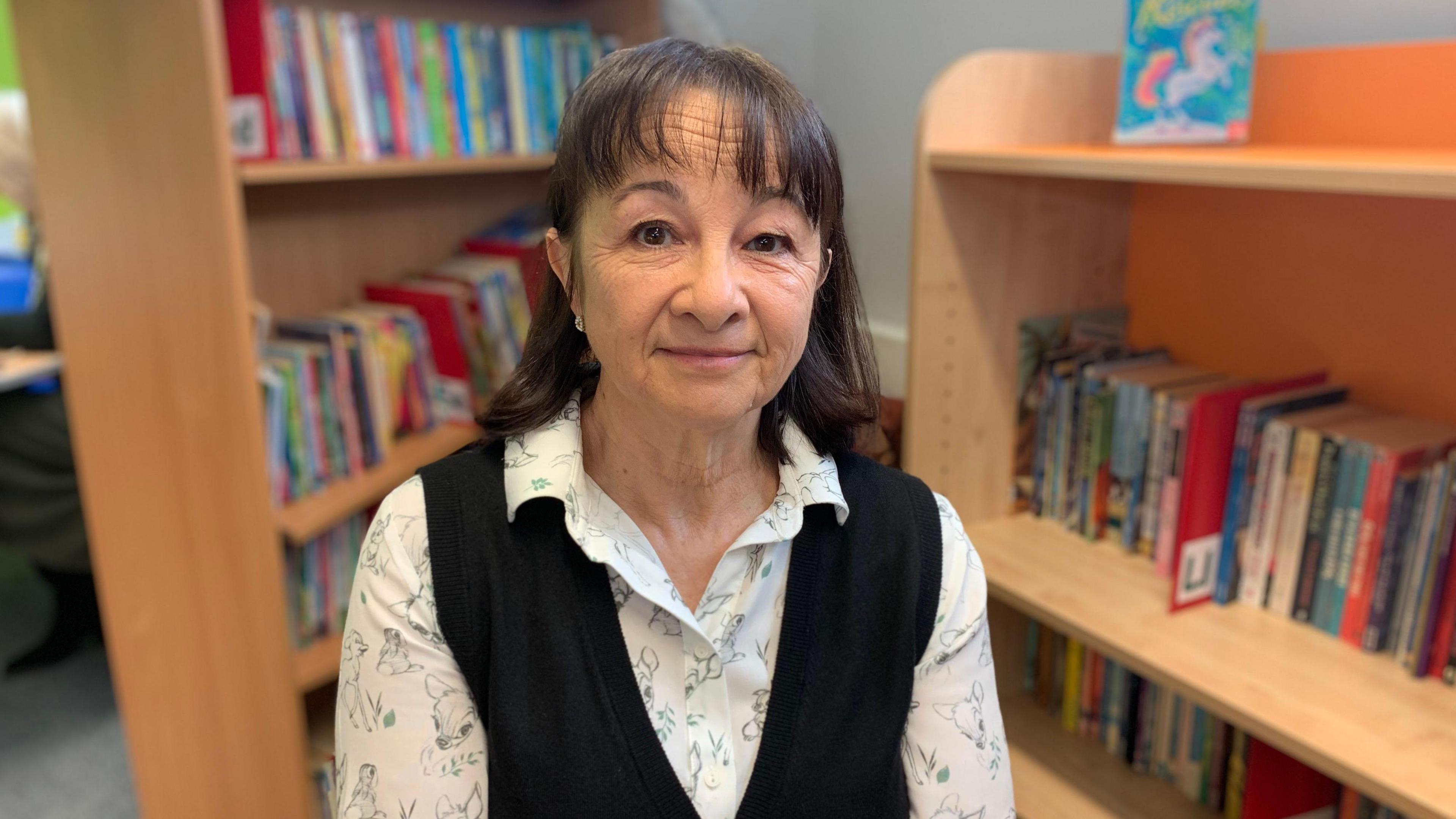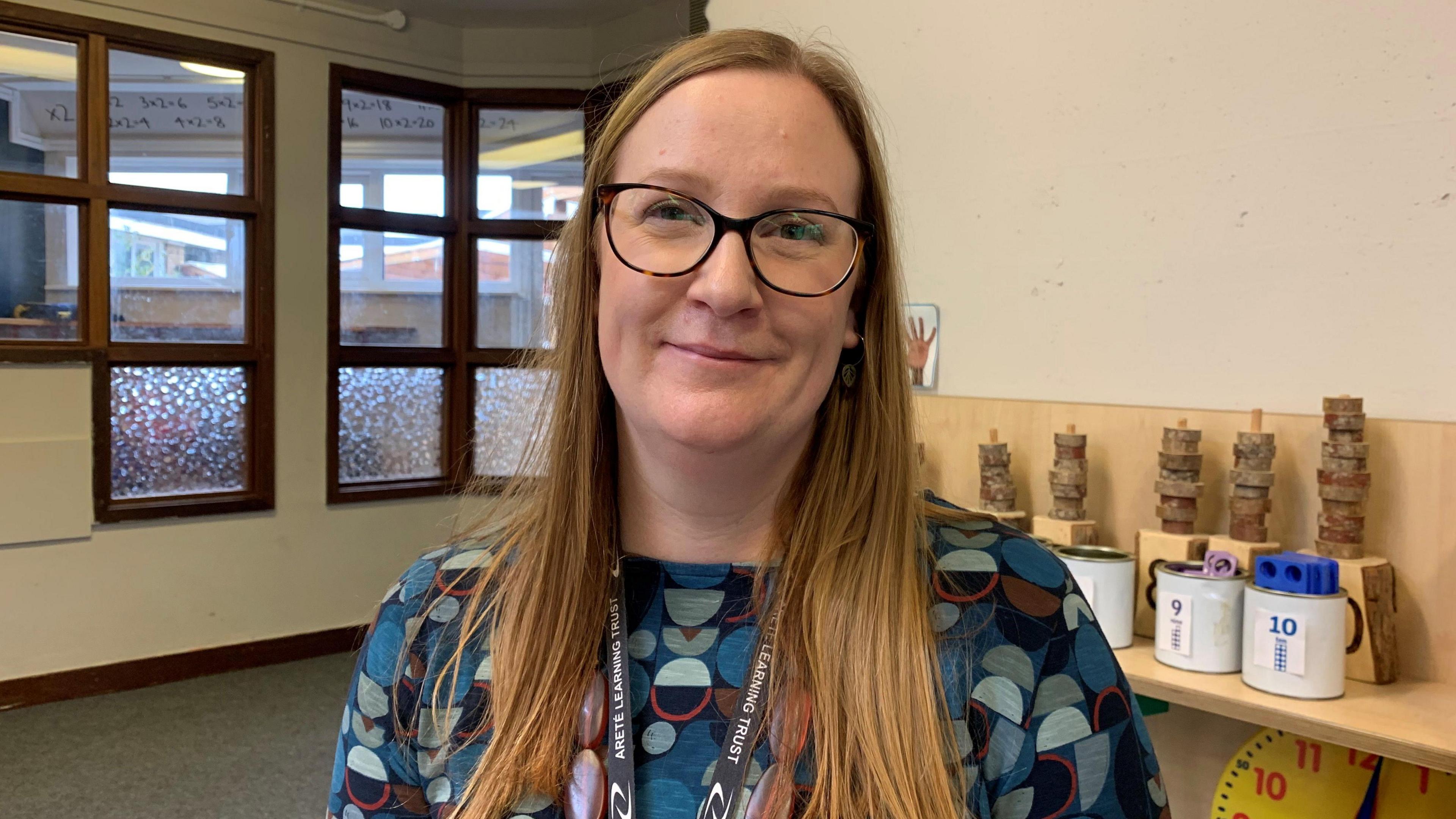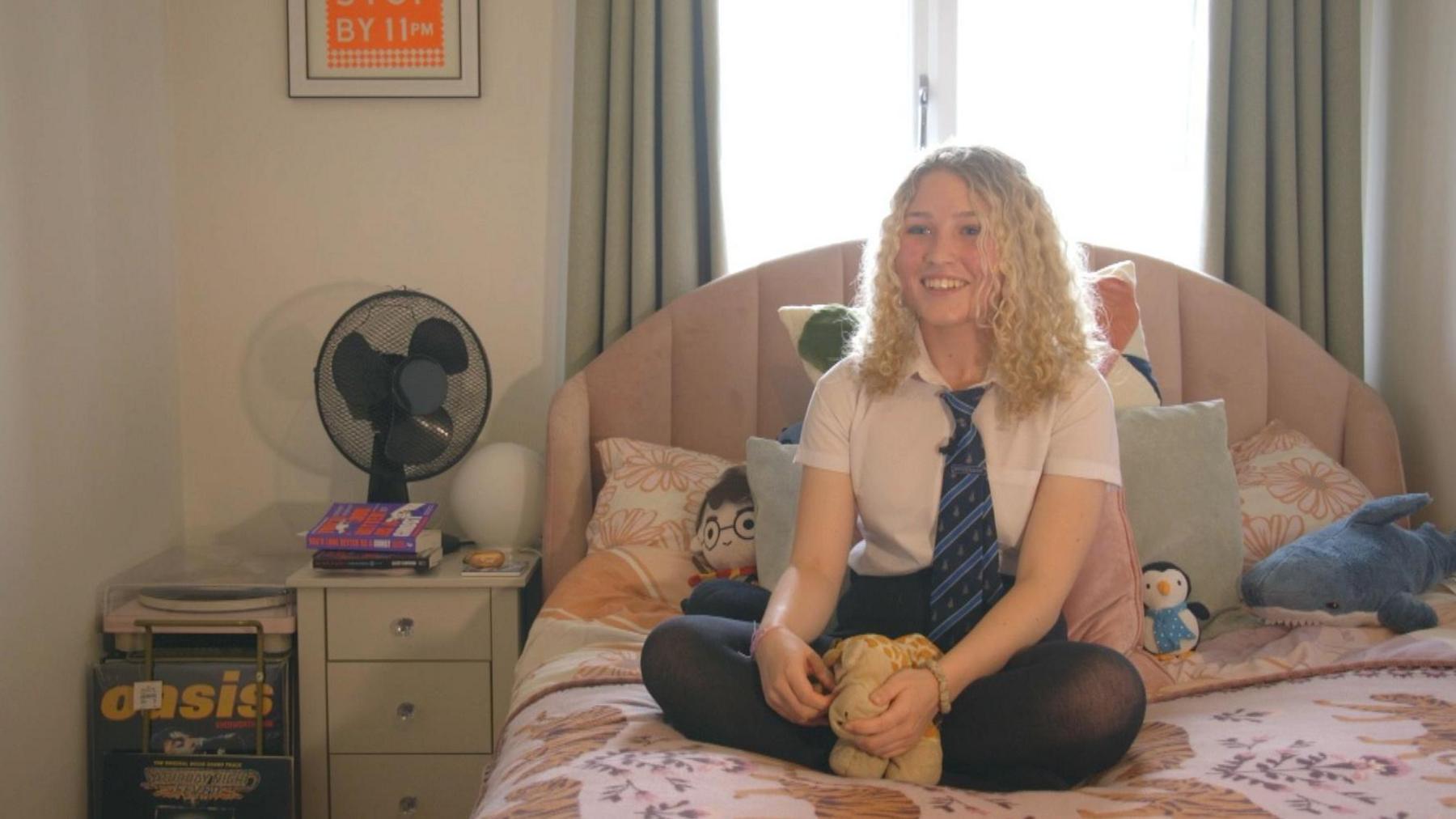Pre-school children's screen time at 'crisis point'

An expert said children are not experiencing the world 'first-hand'
- Published
Pre-school children's speech and language development is in "steady decline" due to an over-reliance on screen time, an expert has said.
More than 25% of three- and four-year-olds own their own smartphone and half of children under 13 are on social media, according to a recent Ofcom report.
One early years centre in North Yorkshire said that some of its pupils even used Americanisms like "diaper" and "garbage" that they had learned from their viewing, but could not communicate basic needs such as needing the toilet.
The Department for Education said it has set a "clear milestone" including advanced early language support to make sure thousands of children are school-ready by age five.
Kate Beck, from Mill Hill Community Primary in North Allerton, said she thought screens were a "big factor" in the steady decline she has seen in children's language skills.
"Some children use American vocabulary which they are definitely hearing from a screen", she added.
Ms Beck, who has been a teacher for 20 years, also said some children were not experiencing the world first-hand but seeing it through "someone else's eyes" when they were watching someone play with toys on YouTube.
Meanwhile speech and language therapist Sandy Chapell, from Health Professionals for Safer Screens, said she has seen a decline in children's communication skills over the last 10 years and an increase in referrals.

Speech and language therapist Sandy Chapell said she has seen a rise in referrals over the past 10 years
She said more young children were being referred with delayed speech and language abilities as well as poor social, attention and listening skills.
Ms Chapell believes parents don't know how harmful screens are for young children and is calling for a public health campaign to highlight the issue.
While it has been widely reported the pandemic had an impact on children's development, Ms Chapell said pre-school children today were too young to have been affected by lockdowns.
"Giving a child a device to calm them down means they don't learn how to regulate their own emotions, which can lead to behaviour problems," she added.
Health Professionals for Safer Screens suggest children age 0-2 should not be on any screens at all and those age 2-5 for a maximum of 30 minutes per day.

Kate Beck, an early years lead, said some children are not even able to go to the toilet
However some parents said this was "unrealistic".
One parent from Mill Hill Community Primary said having older children meant their younger child wanted access to the same devices, while another said screen time was a concern but they kept it "limited".
They also admitted that it was a "struggle" to get the device away from their child.
A Department of Education spokesperson said they were "urgently" working towards strengthening and joining up family services through "continued investment" in the Family Hubs and Start for Life programme.
They added: "More robust evidence is needed to reach clear conclusions on the impact of smartphones on children, which is why we have launched our own research, led by the University of Cambridge, into the impact of social media on children's overall wellbeing."
Listen to highlights from North Yorkshire on BBC Sounds, catch up with the latest episode of Look North or tell us a story you think we should be covering here, external.
Related topics
- Published30 July 2024
